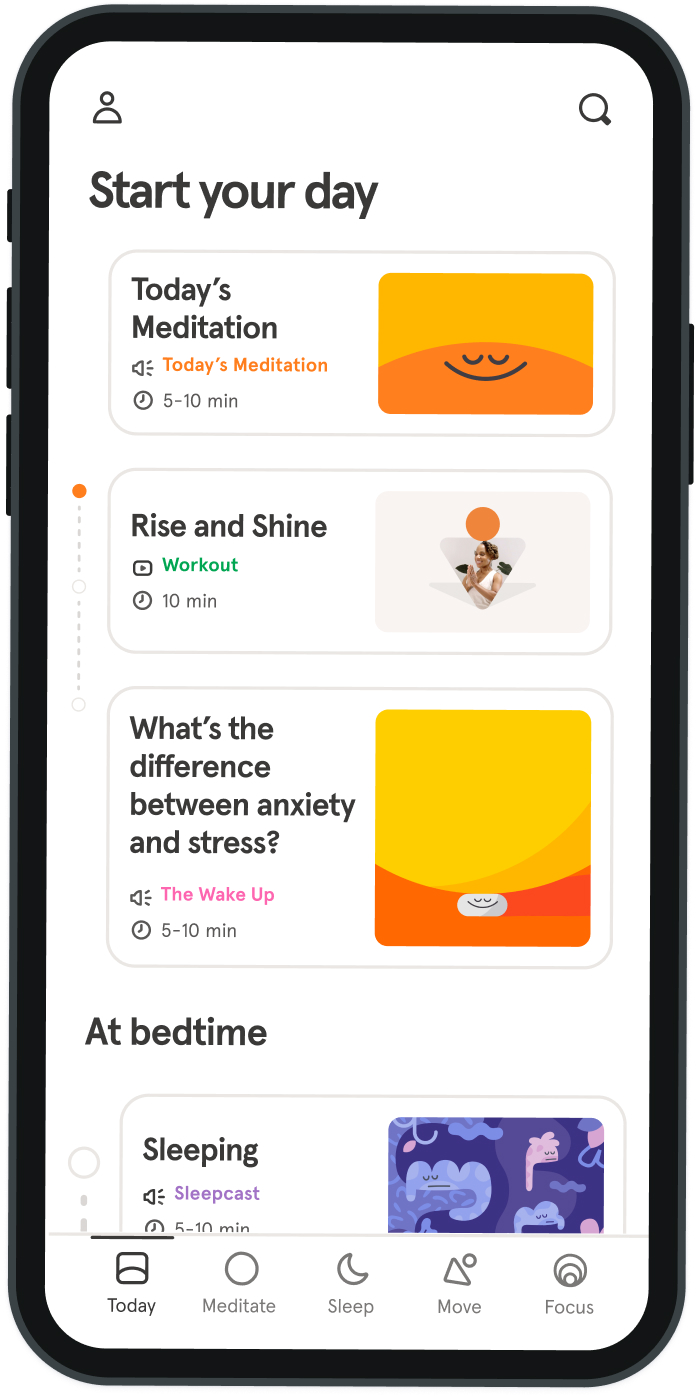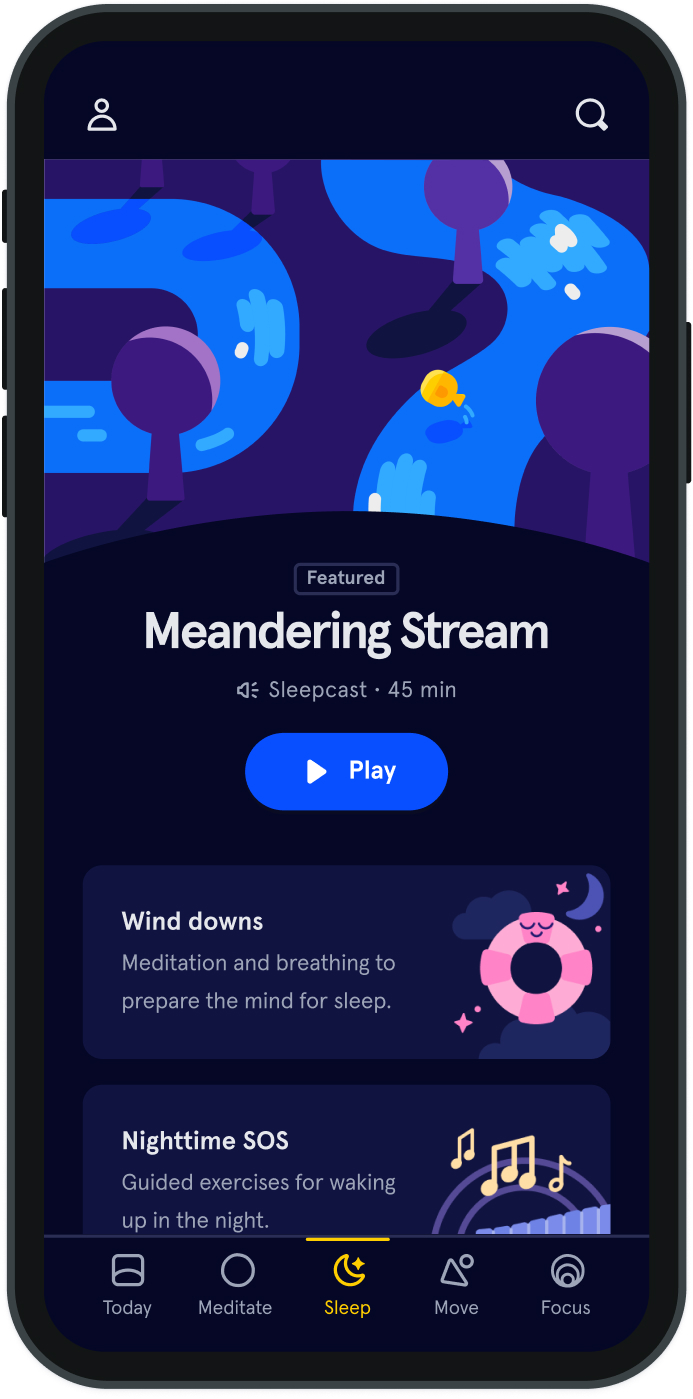The trick to watching what you eat
From no-carb diets to juice cleanses, people will try almost anything to change the number on the bathroom scale—but could there be a powerful technique they’re overlooking? Nutrition experts and science believe so.
“Meditation and mindfulness were a really big part of my eating disorder recovery 12 years ago,” said Nikki Ostrower, founder of NAO Nutrition, a wellness company that specializes in eating disorder treatment. “Meditation helped me quiet my mind, which I used to do with food.” According to Ostrower, mindfulness practice helped her observe her eating habits in real time, learn what foods made her feel healthy or sick, and make better food choices. She also said she “felt more balanced and had more energy.” Because of her journey and her desire to help others eat healthier, Ostrower became a nutritionist. Andrea Moss, another nutritionist and the founder of Moss Wellness, followed a similar path. Moss, who used to weigh 50 pounds more than she currently does, said, “For me, one of the things that made that change was being mindful of what I was eating, and paying attention to how my body responded to certain foods.” According to Moss and Ostrower, the critical piece to understand is the difference between unconscious and mindful eating. Unconscious eating, Moss explained, happens when we consume food without thinking about what we’re doing. “We’re living in a society where people are eating completely unconsciously, which is leading to overeating, or not eating—skipping meals,” Ostrower said. “And the fallout can be all kinds of digestive disorders, weak immune systems, eating disorders, mood disorders. Food, and being conscious with our food choices, is key.”
Mindful eating, Moss explained, means paying attention while you eat—eating with intention. “Like meditation, it’s being present in the here and now,” she said. “How do you feel when you’re eating? How does the food feel in your mouth? What do you taste? How do you feel after you’re done?” To help her clients, Ostrower gives each a “Mindful Eating Principles” document because, as she said, “it’s a practice, and it doesn’t come naturally.” Though it’s not easy, she said, “it’s actually proven that when we retrain the mind to eat mindfully and consciously, it helps to curb cravings and also reject harmful behaviors. So the result is that mindfulness and meditation create a beautiful lifestyle change.” According to Melissa D. Horowitz, PsyD., a clinical psychologist and the Director of Eating Disorders and Weight Management Program at the American Institute for Cognitive Therapy, “There’s a sizable amount of research discussing the benefits of practicing mindfulness and meditation, and some studies have found that mindfulness meditation reduces binge eating and emotional eating.” Much of Horowitz’s work deals with individuals’ thoughts and emotions about food, and how those thoughts and emotions influence their diets. Horowitz said mindfulness practice is one of the techniques she uses to help her patients refrain from emotional eating because mindfulness “increases a person’s awareness so they can really pay attention to what’s happening inside themselves, as well as what’s happening outside themselves in their immediate surroundings.” What mindfulness gives people, she said, is “non-judgmental awareness of the moment.” That awareness, Horowitz said, is crucial. It helps people realize when they’re truly hungry as opposed to when they’re eating in response to their emotions, and although mindfulness alone doesn’t make good food choices for people, it enables people to realize that they do have a choice. Horowitz said that awareness, combined with other effective nutrition techniques, can be a powerful tool.
Read more: A split-second decision that could change your weight
Ostrower witnessed this power firsthand with one of her patients who suffered from severe constipation. “For three years, she would have about one bowel movement per week, and it was because she was so anxious,” Ostrower said. She advised the woman to meditate two to three times a day—including when she was on the toilet—and, without too many messy details, it worked. “The meditation mindfulness techniques that we teach our clients are 80 percent of what makes our practice so successful,” Ostrower said. Moss believes in meditation to the extent that she has advised multiple patients to use Headspace. [Editor’s Note: unbeknownst to us!] “We really see, in our practice, meditation being beneficial to overall health,” she said. “And one thing that helps for people who are new to meditation is being able to offer really acceptable tools. Something that doesn’t take up a lot of time or money in someone’s life, and that’s where the Headspace app is so, so useful.” Moss, who called herself a “big fan” of Headspace, said one of her clients uses the app frequently while traveling because it helps her stay mindful, even on the go. And, as a new mother whose free time is scarce, Moss herself uses the app often. “The effects of mindfulness and meditation affect all aspects of your life,” Moss said—a theme echoed by Ostrower and Horowitz. Though all three women treat eating disorders, their work focuses more generally on helping individuals become happier, healthier human beings. And mindfulness plays a huge part in that. “Meditation just made me a much, much happier person because I’m able to focus and be present in this very moment,” Moss said. “Usually, the present moment is pretty great, so when I am able to be in the present moment, that just makes me a happier person in general.”



Be kind to your mind
- Access the full library of 500+ meditations on everything from stress, to resilience, to compassion
- Put your mind to bed with sleep sounds, music, and wind-down exercises
- Make mindfulness a part of your daily routine with tension-releasing workouts, relaxing yoga, Focus music playlists, and more
Meditation and mindfulness for any mind, any mood, any goal

Stay in the loop
Be the first to get updates on our latest content, special offers, and new features.
By signing up, you’re agreeing to receive marketing emails from Headspace. You can unsubscribe at any time. For more details, check out our Privacy Policy.
- © 2025 Headspace Inc.
- Terms & conditions
- Privacy policy
- Consumer Health Data
- Your privacy choices
- CA Privacy Notice
